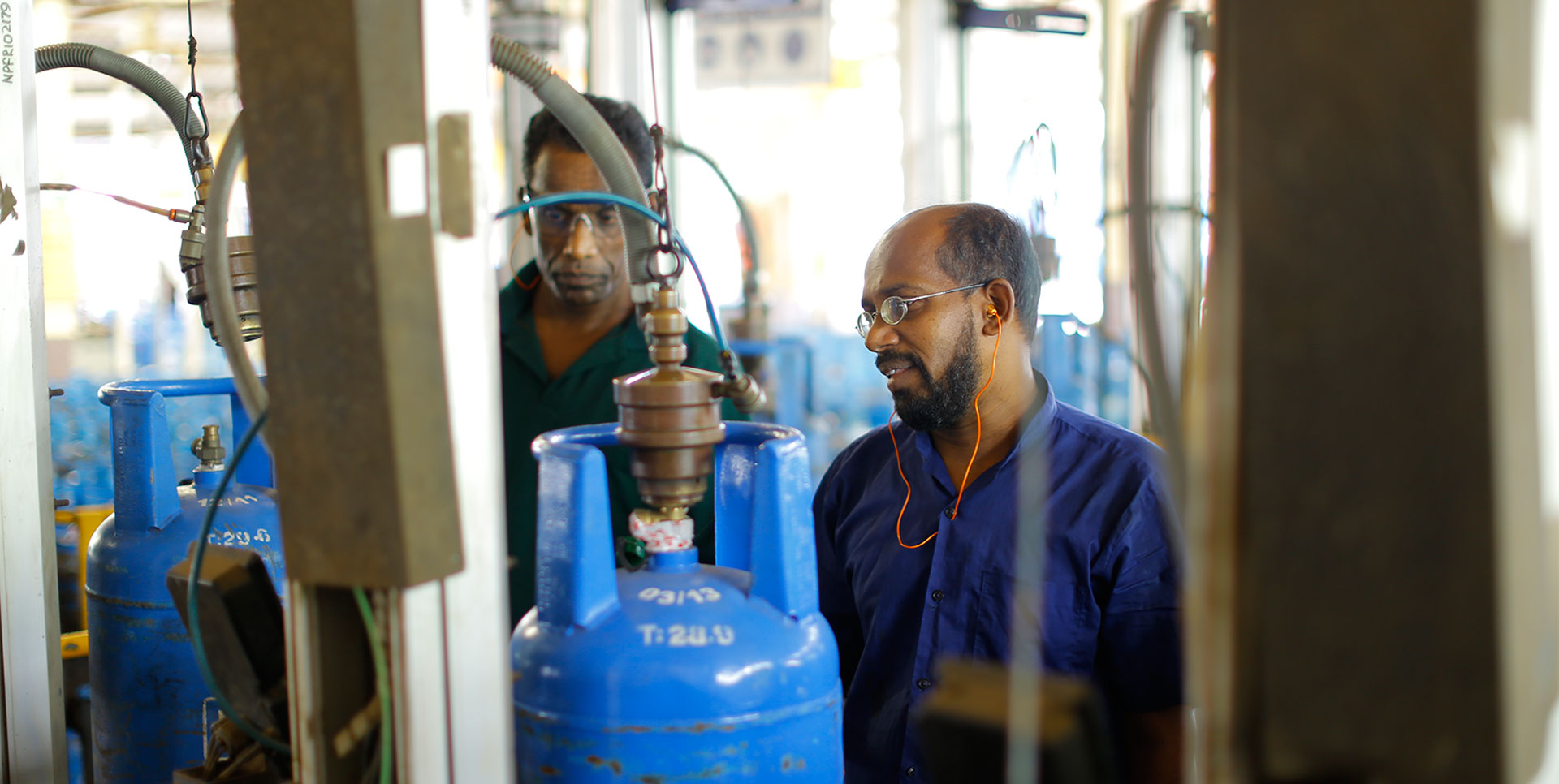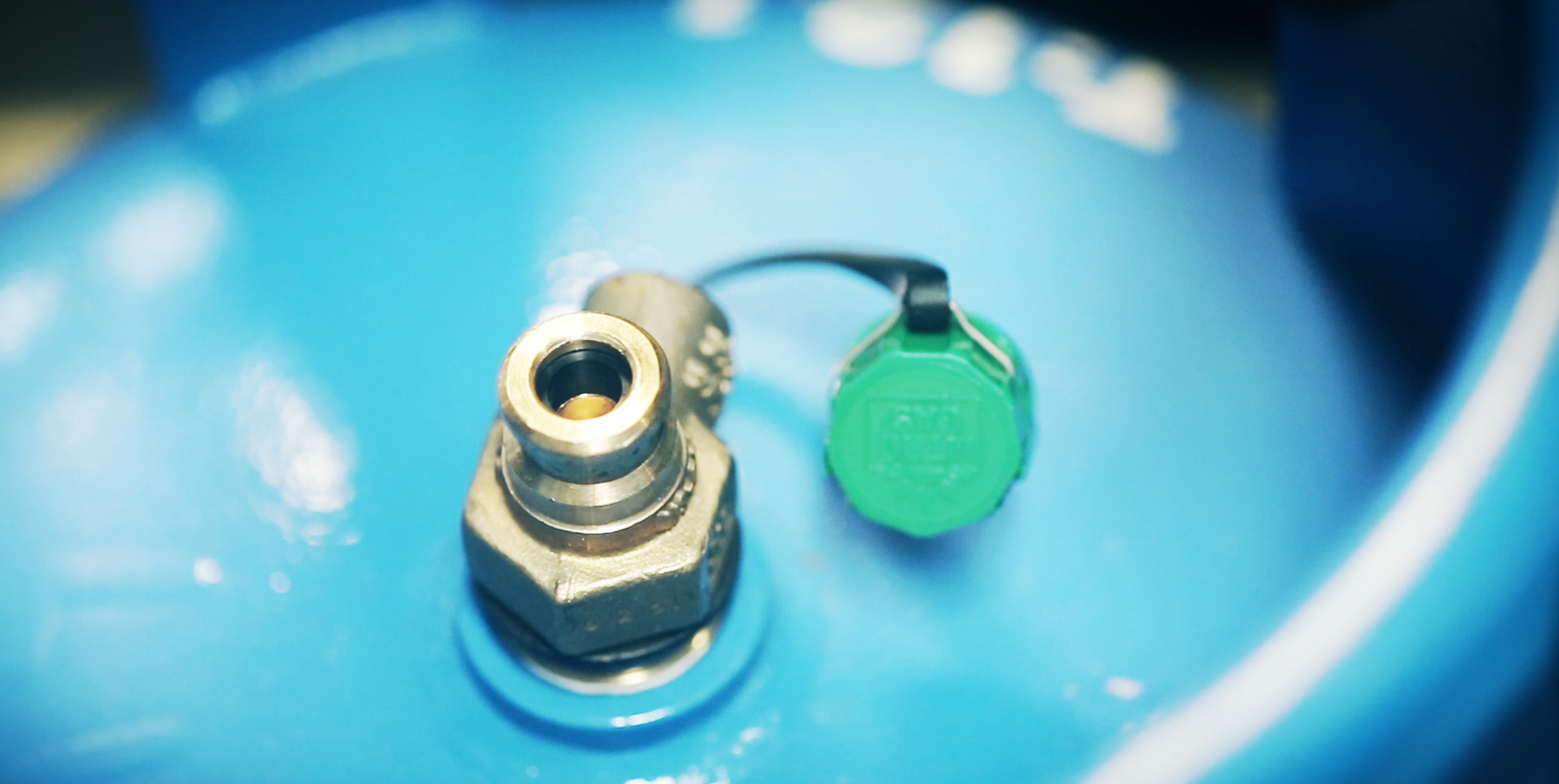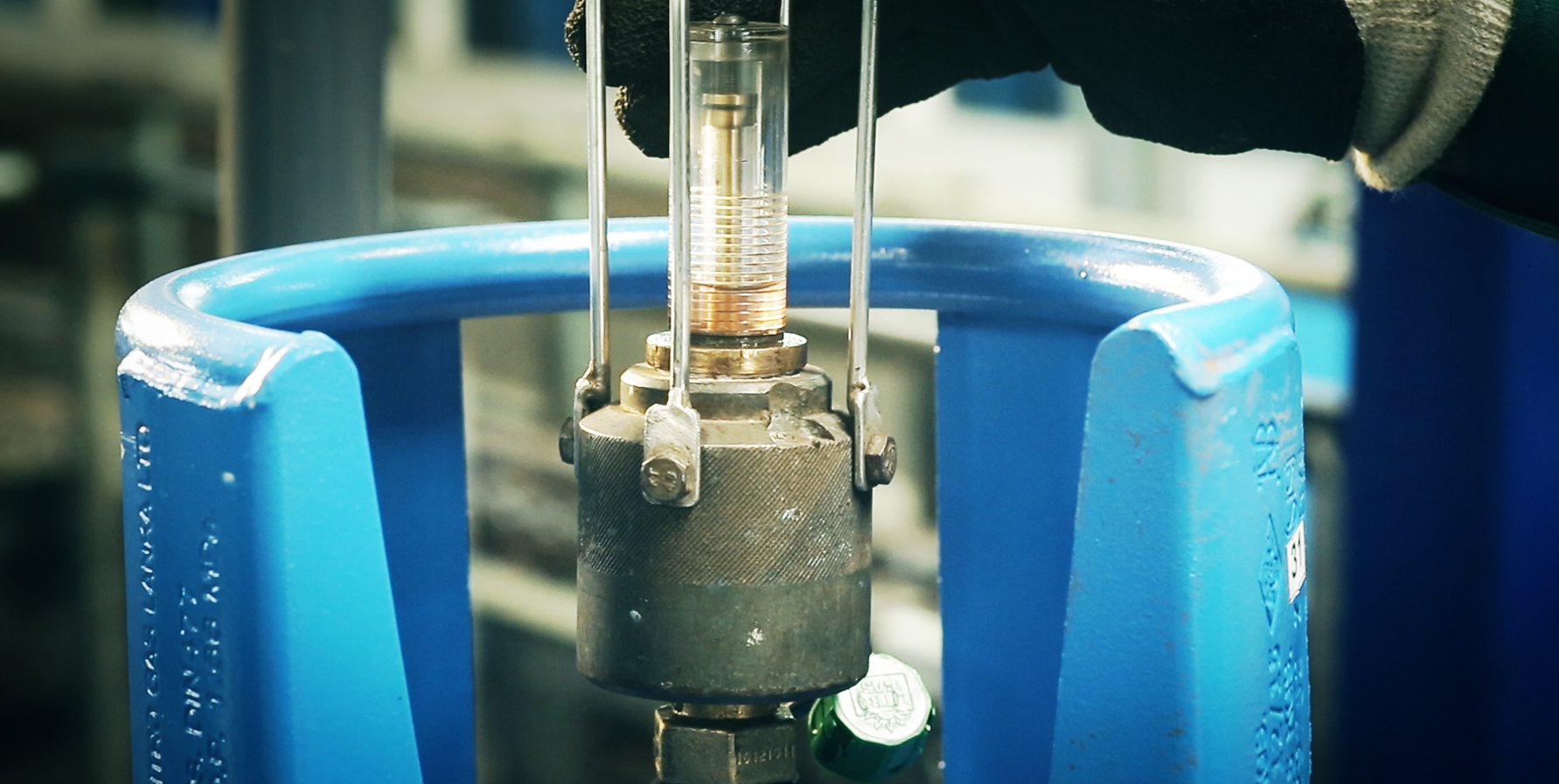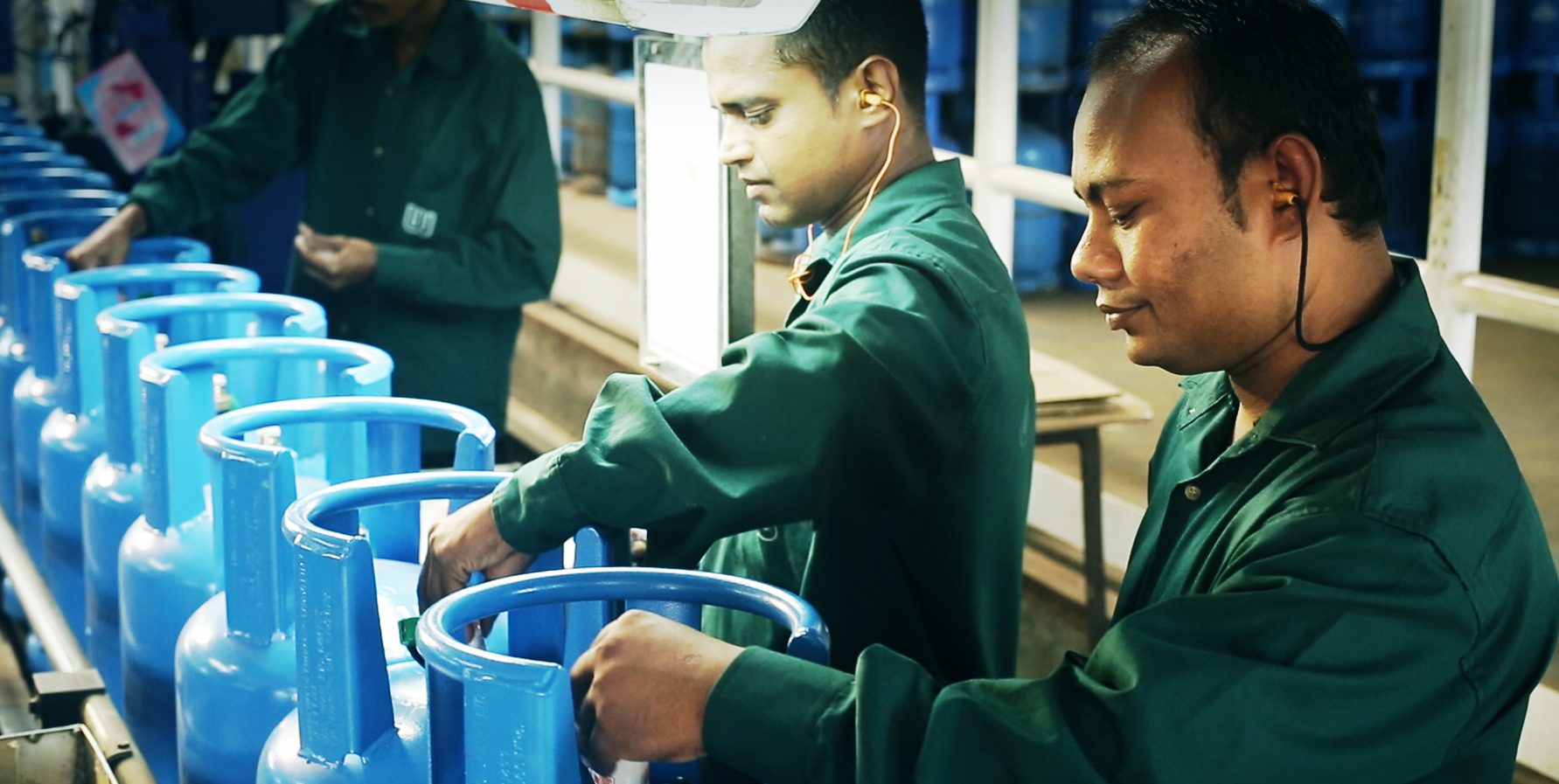As a Company engaged handling highly flammable LPG as the core product, safety is a key value for us and for our customers. We maintain a consistent support service and a world class monitoring system throughout our supply chains to ensure safety at multiple levels. As Sri Lanka’s national LPG provider, Litro Gas Lanka maintains a firm pledge of supporting initiatives that strengthen the promise of LPG as a clean, green energy.
Safety Standards
Safety is an important cornerstone in the Company’s strategy. We are concerned about our Customers, our People, our Contractors and the Environment. The LPG industry has many safety standards and given the history of Litro Gas, safety has always been maintained under the stringent guidelines of Global and Local Standards and the Governing Laws of Sri Lanka.

These standards cover Product Quality, Cylinders, Cylinder Filling Operation, Storage and Use, LPG Accessories (Hoses and Regulators), LPG Transport, Bulk Customer Sites, and Filling Plants.
Litro Gas has a reputation for the strict follow up of safety standards.
LPG is a safe fuel when handled correctly. In order to do this, one needs to understand the properties of LPG, use proper equipment and accessories, and design LPG piping systems appropriately. Litro Gas has a team of qualified experts who can advise you on setting up your LPG system. Should you wish to contact us regarding this, please call our Customer Service Help Line on 1311 or email us on csc@litrogas.com
LP Gas is naturally odorless and invisible; a distinctive odor is usually added as a safety feature. This allows even the smallest leak to be detected and receive the appropriate attention. However, as LP Gas is heavier than air, an underground or low level leak may not be detected immediately.
Litro Gas has made safety leaflets available at all points of sale free of charge. You could learn more about safety either from the leaflets or from the ‘Safety First’ section of this website.
We care
In order to ensure Safety is maintained, Litro Gas adopts many processes to check the authenticity and the function of its cylinders and tanks. This in turn provides peace of mind to consumers during the usage of LPG. However, whilst using LPG, consumers must ensure that the product is handled and used in a safe manner. Should you wish to have any clarification on safety and the usage of LPG, please contact our Customer Service Centre Helpline on 1311 or your nearest Litro Gas authorised dealer or your Litro Gas Account Manager.
Safety for Domestic Users
- Always keep the LPG cylinders in a vertical position with the valve on top.
- LPG cylinders must be installed at ground level and never below ground level or in basements etc.
- LPG cylinders should never be used in a poorly ventilated room.
- If LPG cylinders are placed in cupboards they should be provided with ventilation openings both at floor level and at top level.
- Do not store LPG cylinders inside a kitchen other than the domestic cylinder in use, whether they are full or empty.
- Do not install cooking appliances on the floor or on wooden tables.
Safety for Commercial Users
- Install a piping system with a LPG cylinder manifold outside the kitchen if more than one appliance is used in a kitchen, especially in hotels and restaurants.
- LPG Cylinders must not be installed in any position, in which they may become overheated (Electrical oven or Kerosene/Firewood stove etc)
- Do not keep any vessel/ utensil/ cloth etc. on the top of the cylinders.
- LPG hoses more than 1.5 m must be not used to connect the regulator and cooker.
- If more than one cooker is used always install a piping system with necessary valves and regulators.
Safety First
The term LP Gas is an abbreviation for Liquefied Petroleum Gas and refers to a hydrocarbon product. Butane and Propane are the predominant constituents of LP Gas. LP Gas safety comes from understanding the characteristics and behavior of the product.
The behavior of LP Gas is predictable and the technology for control is well understood. Litro Gas Lanka Limited has a professional Technical and Safety Team.


The hazards commonly associated with LP Gas are fire and explosions. Since uncontrolled releases of LP Gas can have serious consequences, the prime objective of LP Gas safety is to prevent uncontrolled loss of primary containment.
Space and separation distances are fundamental to safety at LP Gas facilities large and small, and should be assessed and observed for each location.
At Litro Gas, personnel engaged in LP Gas operations receive formal training by competent persons for their normal activities and emergencies. All Litro Gas facilities have emergency planning and response programs appropriate to the hazards and risks which they represent. These include correct handling procedures to avoid injury.
As a safety precaution, LP Gas is adequately odorized prior to entering the distribution chain. LP Gas cylinders and tanks should never be allowed to become liquid-full. Climatic conditions will influence the degree of ullage required but it is typical practice to fill up to around 85% of the water capacity of the vessel.







